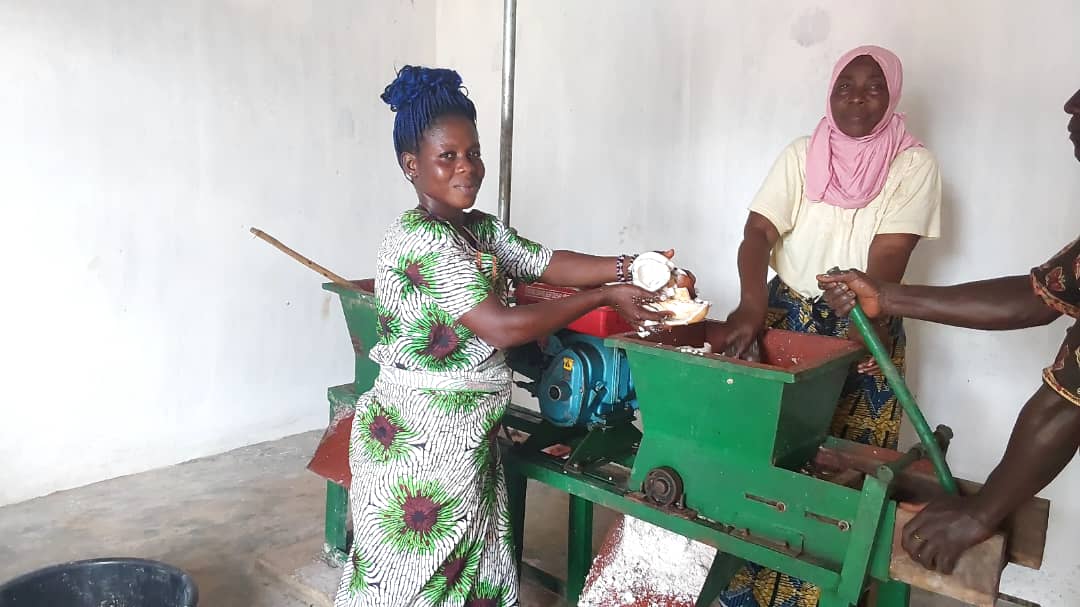News |
WACA Project Empowers Women Coconut Processors in Boko, Togo with New Equipment
In Boko, Togo, women coconut processors have significantly boosted their work efficiency and income, thanks to a coconut grater donated by the West Africa Coastal Areas (WACA) project. This machine has transformed their daily routines, making coconut grating faster, safer, and more productive. It has elevated the quality of coconut oil they produce, which is highly valued across Togo and beyond.
Previously, the grating process was grueling and time-consuming, involving hours of manual labor with a basic perforated metal sheet. Now, the new grater allows them to process large quantities of coconuts in minutes, saving them time and protecting their hands from injury. This boost in efficiency has allowed them to increase production and enhance their incomes.
Mrs. Liporo Assamaou, president of the Women's Processing Association, expresses pride in their newfound self-reliance. "In the absence of men, we are able to grate the coconuts bought with this machine. Even though the price of coconuts has risen, we are still able to make a profit. This allows us to meet our families' needs and pay for our children's education," she says. The women's oil is sold for between 3000 and 4000 XOF per liter, contributing to a steady increase in income.
With guidance from AVOTODE NGO, the women have also strengthened their business management skills. They have established a system to share profits equitably: half is distributed among members, and half is saved in a communal fund for equipment maintenance. This approach ensures both immediate benefits and long-term sustainability.

Beyond the grater, the WACA project provided equipment for oil production, packaging materials, and coconut tree seedlings to secure future supplies. In collaboration with five neighboring villages, a ten-hectare reforestation initiative was launched. Through the high-intensity labor (HIMO) approach, the women participated in planting these trees, securing a sustainable source of coconuts in a region where supply is limited.
In their fourth production cycle, the women are already seeing results. Mrs. Assamaou recalls the modest early profits, smiling as she describes their growing communal fund. For these women, the coconut grater symbolizes much more than efficiency; it marks a new beginning, bringing optimism, economic independence, and promising prospects for the future.